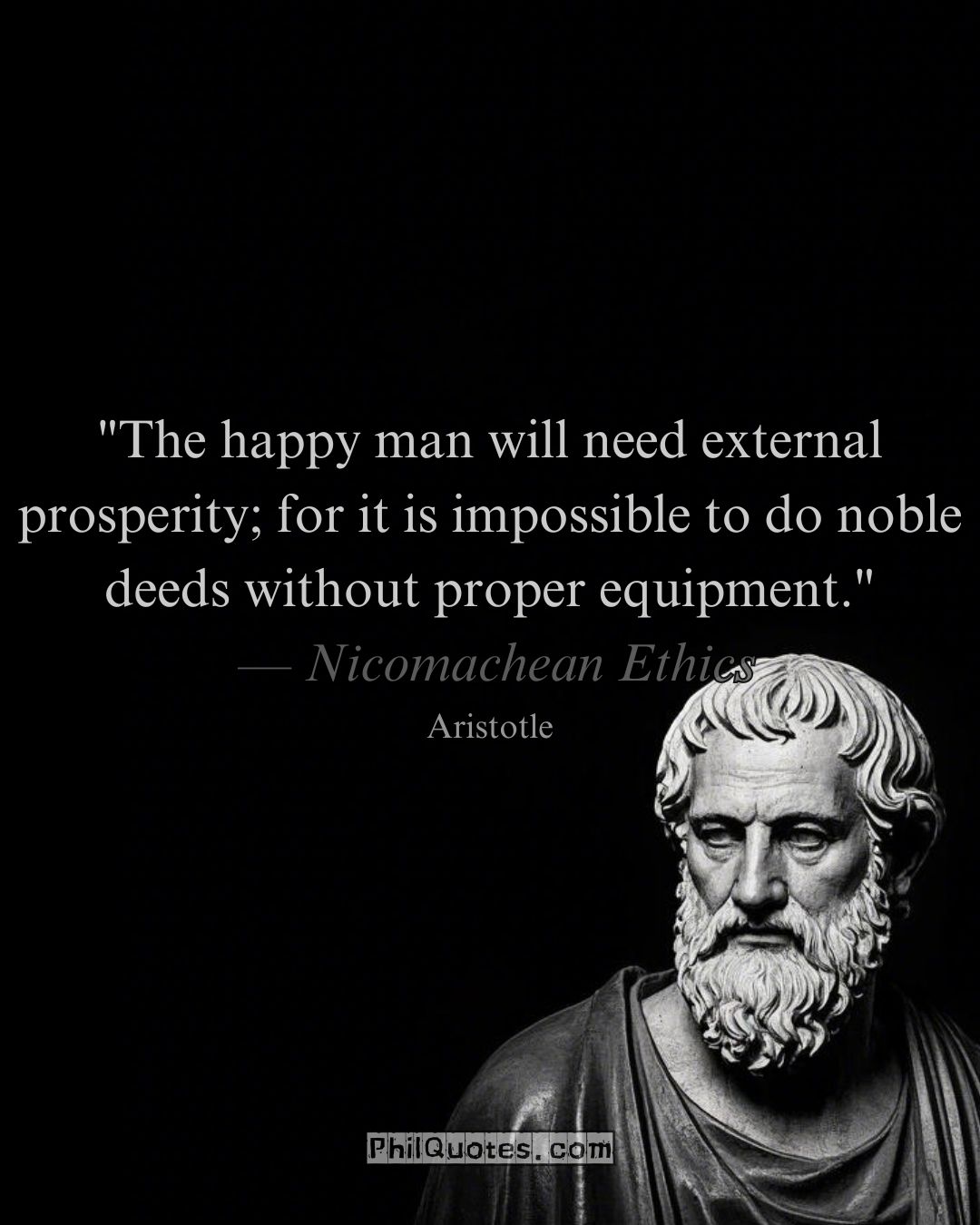
“The happy man will need external prosperity; for it is impossible to do noble deeds without proper equipment.”
— Aristotle, Nicomachean Ethics, Book I, Chapter 8
Simple Explanation:
Aristotle balances idealism with pragmatism: True happiness (eudaimonia) requires both inner virtue (courage, justice) and external resources (wealth, social networks). Like a sculptor needing marble to create art, ethical greatness demands tools — but warns against mistaking the chisel for the masterpiece.
Real-World Connection:
① Green Tech Entrepreneurship →
You secure venture capital (prosperity) → develop solar-powered water purifiers (equipment) → provide clean water to 10,000 villages (noble deed) → prove wealth as virtue’s amplifier.
② Teacher’s Mission →
A rural educator obtains digital tablets (prosperity) → creates AI-powered literacy apps (tool) → lifts student graduation rates by 300% (ethical impact) → shows resources enabling moral legacy.
③ The Hidden Alchemy →
External prosperity becomes ethical only when fused with virtuous intent:
- Food banks transforming donations (money) into dignity (action)
- Lawyers using legal expertise (skill) to defend human rights (purpose)
- Artists leveraging fame (influence) to champion mental health (compassion)